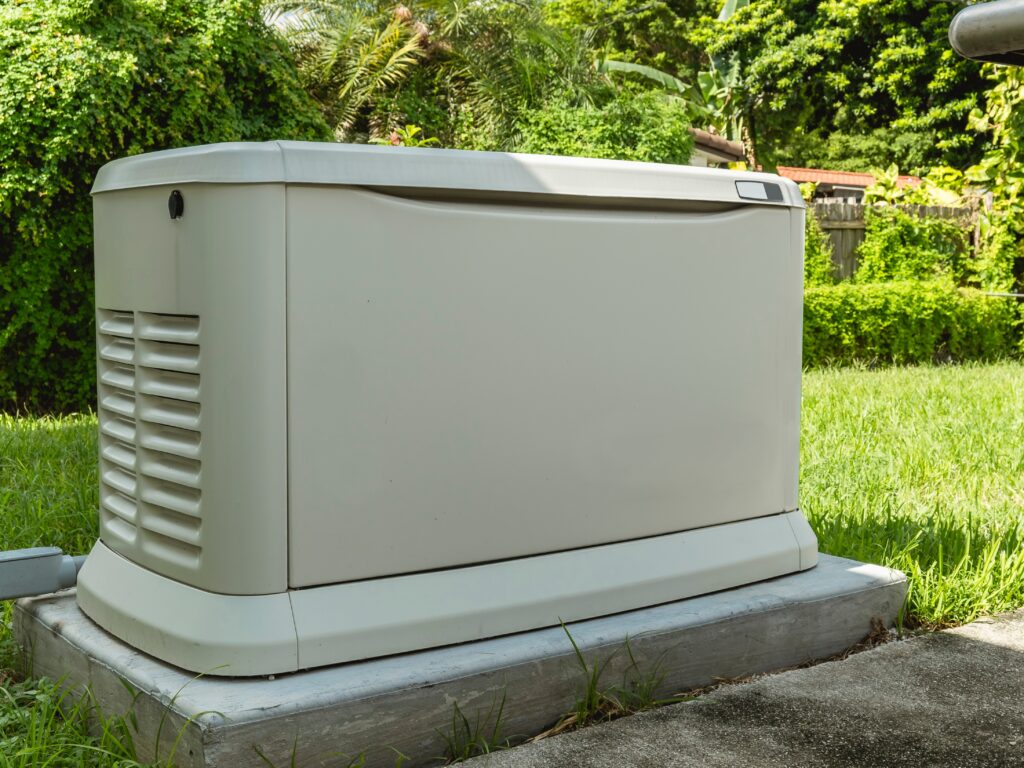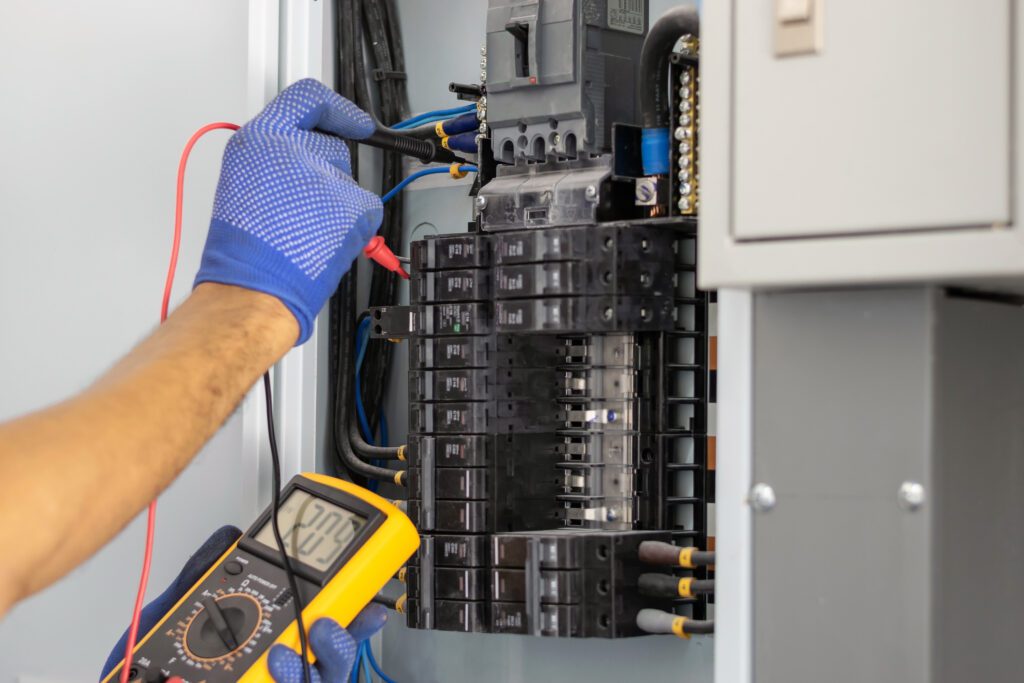

Are you preparing for the next power outage? One of the most important things to consider is having a reliable generator on hand. But with so many options available, it can be overwhelming to determine what size generator you may need. From calculating your power needs to understanding the different types of generators, this ultimate guide will help you choose the perfect size generator to keep your home and family safe and comfortable during unexpected outages. Let’s dive in!
Having the right size generator for your home is crucial when it comes to ensuring your safety and comfort during power outages. It’s not just about having any generator; it’s about having the right generator that can adequately power your home’s essential appliances and systems.

Having the right generator protects your home’s essential appliances and systems, ensuring you remain safe during a power outage.
Choosing the wrong size generator can lead to several problems. If the generator is too small, it won’t be able to provide enough power to keep your essential appliances running. This can result in a loss of food in your refrigerator, a lack of heating or cooling, and potential damage to sensitive electronics. On the other hand, if the generator is too large, you’ll end up wasting fuel and spending more money than necessary.
To avoid these issues, let’s review the two most common generator types for your home.
When it comes to choosing a generator for your home, it’s important to understand the difference between standby and portable generators as well. Each type has its own unique features and benefits that can cater to different needs.
Standby generators are permanently installed outside your home and are connected directly to your electrical system. They are designed to automatically turn on when the power goes out and provide a seamless transition. Standby generators are typically powered by propane or natural gas, ensuring a constant and reliable fuel source. They have a higher power capacity, making them suitable for larger homes or homes with higher energy demands. Standby generators also offer added convenience, as they require little to no manual intervention during outages.

Standby home generators are permanently installed outside your home, often powered by propane or natural gas, and designed to turn on automatically when needed.
On the other hand, portable generators are smaller, more mobile units that can be easily transported and used wherever needed. They run on gasoline, propane, or diesel and need to be manually started and connected to your appliances or electrical system. Portable generators are a cost-effective option for smaller homes or those with lower power demands. They provide flexibility in terms of where they can be used and are ideal for camping trips or powering specific appliances during outages.
Ultimately, the choice between a standby generator and a portable generator depends on your specific needs, budget, and level of convenience desired. Assessing your power requirements and considering factors such as installation costs, fuel efficiency, and maintenance requirements will help you make an informed decision.
Now that we know the types, the first step in determining the right size generator is simply making a list of the appliances and devices you consider essential in your home. This typically includes refrigerators, freezers, HVAC systems, lights, water pumps, and electronics. Once you have your list, determine the wattage needed to power each item. You can usually find this information on the appliance’s label or in the user manual. Add up the wattage for all the appliances to get the total power requirement.
Remember that some appliances have higher starting wattage requirements, such as refrigerators and air conditioners, while others have lower running wattage requirements, like lights and televisions. It’s important to consider both starting and running wattage when calculating your power needs.
Keep in mind that generators come with different power capacities, too, typically measured in watts. So, ensure that the generator you choose can provide enough wattage to handle the total power requirement of your essential appliances. It’s always better to have a generator with slightly higher capacity than to risk underpowering your home.
In addition to sheer power, fuel efficiency and run time should also be considered before investing in a home generator. Fuel efficiency refers to how efficiently the generator uses fuel to produce power. A more fuel-efficient generator will obviously consume less fuel, saving you money in the long run. Look for generators with advanced technologies, such as inverter generators, which are known for their fuel efficiency.
Additionally, you’ll want to consider the run time of the generator. This refers to how long the generator can operate on a full tank of fuel. A longer run time is beneficial as it means you won’t have to refuel as frequently during a power outage. Look for generators with longer run times, especially if you anticipate extended power outages in your area.
Keep in mind that fuel efficiency and run time can vary depending on the load placed on the generator. Running the generator at a lower load, for example, will typically result in better fuel efficiency and longer run times. It’s important to assess your power needs accurately and choose a generator that can handle your required load while still being fuel-efficient.
Homeowners should also consider the installation and maintenance costs that come along with purchasing a compressor as well.
The installation costs of a generator can vary depending on the type of generator you choose. Standby generators generally require professional installation, as they need to be connected to your electrical system and often require a concrete pad or professional wiring. These installation costs can add up, so it’s important to factor them into your budget.
Additionally, generators need regular maintenance to ensure they are in proper working condition and ready to power your home during outages. This can include oil changes, filter replacements, and general inspections. While some homeowners may be comfortable performing basic maintenance themselves, others may prefer to hire a professional, which can add to the overall cost.

Like most major appliances, generators need regular maintenance to ensure they are working properly; if you are uncomfortable performing your own maintenance, hire a professional.
Consider your budget and evaluate whether the long-term costs are manageable for you. Remember, a well-maintained generator can last for many years, providing you with a reliable backup power source when you need it most.
Finally, Connecticut-based homeowners should be aware of any local regulations and codes that may govern proper home generator installation and use. Some examples include:
By complying with Connecticut’s local regulations and codes, you can ensure the safe and legal operation of your generator. It’s important to research and understand these regulations before purchasing and installing a generator to avoid any potential fines or penalties.
Seeking guidance from a licensed electrician or generator installer who is familiar with Connecticut’s local regulations can help you navigate these requirements and ensure that your generator is installed and operated properly. Remember, compliance is key to enjoying the benefits of your generator while staying on the right side of the law.
Making the decision to invest in a generator is a big step towards ensuring your family’s safety and comfort during power outages. With so many factors to consider, it can be overwhelming to choose the perfect size generator. That’s why it’s always a good idea to seek expert advice before making your final decision.
Electricians and generator installers have extensive knowledge and experience in selecting and installing generators. They can assess your home’s power needs, calculate the appropriate size generator, and provide valuable insights on the different options available. They can also guide you through the process of obtaining permits, complying with local regulations, and ensuring a safe installation.
Seeking expert advice can save you time and money in the long run. Electricians and installers can help you avoid costly mistakes and ensure that your generator operates efficiently and effectively. They can also provide recommendations on reputable brands and models that have proven reliability and performance.
Don’t hesitate to reach out to a licensed electrician or generator installer in your area. They will be able to answer all your questions, address any concerns, and provide personalized advice based on your specific needs and budget. Remember, making an informed decision with the help of an expert will give you peace of mind and ensure that you choose the perfect size generator for your home.
Valiant Energy Solutions specializes in Generac home generators and is committed to serving your family. Contact us today if we can help!